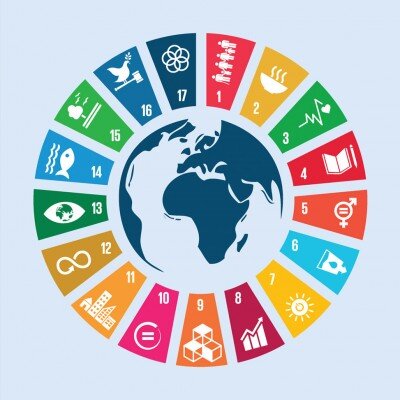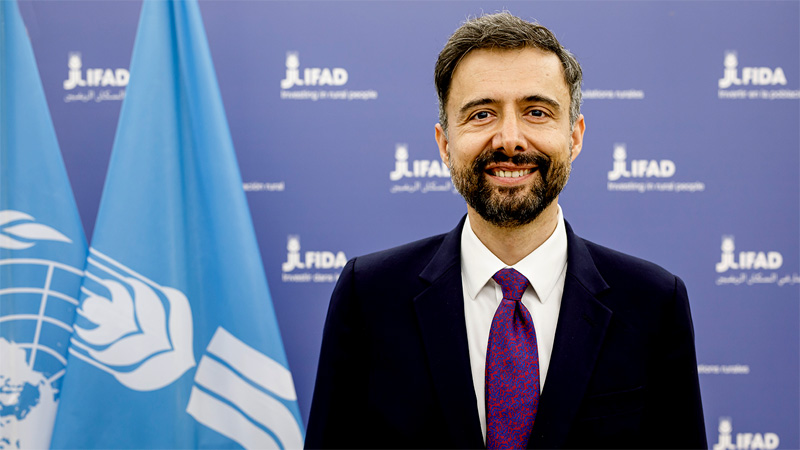Lerato Matheka
In the face of escalating global challenges—ranging from food insecurity to climate change—Africa stands at a crucial moment in its agricultural evolution and the recent G7 Agriculture Ministers’ Communiqué, released on September 28, 2024, in Syracuse, stressed the urgent need for sustainable and resilient agricultural systems to address these challenges head-on.
The communiqué emphasised that agriculture must drive economic growth, contribute to sustainable development, enhance food security, and promote climate action, with a special focus on Africa, where hunger remains alarmingly widespread.
Africa’s Role in Global Agriculture and the SDGs
As global food insecurity continues to rise, the G7 Ministers underscored that agriculture and food systems are central to achieving the Sustainable Development Goals (SDGs). According to the communiqué, agriculture plays a crucial role in the 2030 Agenda for Sustainable Development, ending hunger and malnutrition, and generating income throughout the agricultural value chain.
“With 298.4 million people in Africa experiencing hunger in 2023, these goals have become more urgent than ever,” the ministers said.
The communiqué stressed the interconnectedness of agricultural issues globally, stating that “sustainable agriculture and food systems can help address climate change, reverse biodiversity losses, contribute to economic prosperity, and revitalise rural and fishing communities.”
Climate Change and Resilience: A Call for Action
The communiqué highlighted the need for immediate adaptation of agricultural practices in response to climate change.
“Conflicts, climate variability, weather extremes, and economic setbacks are the main drivers of hunger and malnutrition, and they often reinforce each other,” the G7 minister said, citing the impact of these factors on agricultural production in Africa.
Recognising farmers’ role in mitigating climate change, the G7 Ministers committed to “strengthening farmers’ resilience, addressing inequalities, and promoting reliable and sustainable supply chains that decouple agricultural production from deforestation and land degradation.” Additionally, they emphasised “scaling up climate adaptation and mitigation activities to reduce farmers’ and fishers’ vulnerability.”
Sustainable Fisheries and Aquaculture: A Food Security Lifeline
Africa’s extensive coastal and inland waters offer great potential for fisheries and aquaculture to boost food security.
The communiqué noted that “over 40 per cent of the global population relies on aquatic food,” underscoring the importance of these resources, especially for coastal and rural communities. However, unsustainable practices threaten these fisheries.
The G7 Ministers stressed the need for “sustainable and transparent management of fishery resources to protect marine biodiversity.” They also called for developing aquaculture in line with the FAO Code of Conduct for Responsible Fisheries.
Empowering African Farmers: The Backbone of Resilient Food Systems
Building resilient and sustainable food systems requires empowering smallholder farmers, particularly women and youth, to adopt innovative and climate-smart agricultural practices.
The Ministers stated, “We commit to scaling up efforts to redress imbalances, especially those affecting women and girls, in access to services, land, resources, technology, and finance.”
Promoting youth engagement in agriculture, fisheries, and aquaculture is crucial for boosting innovation and accelerating the achievement of SDGs. The communiqué highlighted initiatives like the G7 Apulia Food Systems Initiative (AFSI) and the G7 initiative on Strengthening Seed Certification Capacity in Africa, which aim to improve seed quality, increase productivity, and ensure food security.

Summary
- In the face of escalating global challenges—ranging from food insecurity to climate change—Africa stands at a crucial moment in its agricultural evolution and the recent G7 Agriculture Ministers’ Communiqué, released on September 28, 2024, in Syracuse, stressed the urgent need for sustainable and resilient agricultural systems to address these challenges head-on.
- According to the communiqué, agriculture plays a crucial role in the 2030 Agenda for Sustainable Development, ending hunger and malnutrition, and generating income throughout the agricultural value chain.
- “Conflicts, climate variability, weather extremes, and economic setbacks are the main drivers of hunger and malnutrition, and they often reinforce each other,” the G7 minister said, citing the impact of these factors on agricultural production in Africa.

Your Trusted Source for News and Insights in Lesotho!
At Newsday Media, we are passionate about delivering accurate, timely, and engaging news and multimedia content to our diverse audience. Founded with the vision of revolutionizing the media landscape in Lesotho, we have grown into a leading hybrid media company that blends traditional journalism with innovative digital platforms.







